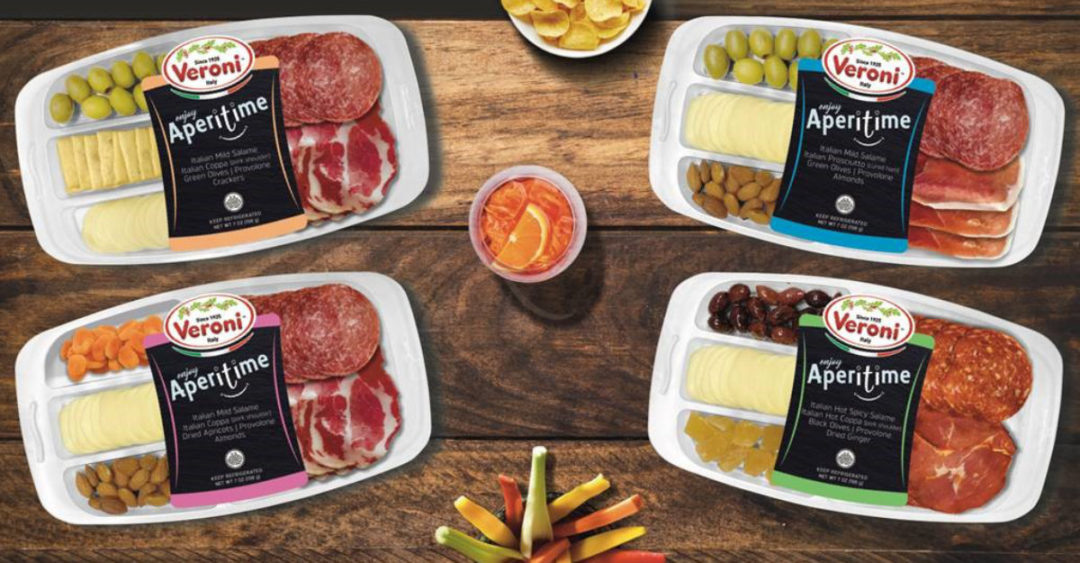The 2020 Winter Fancy Food Show, owned and produced by the Specialty Food Association (SFA), took place Jan. 19 to 21 in San Francisco. With enough charcuterie, cheese and chocolate to fill four football fields, the show confirmed the growing popularity of specialty foods, which are defined as foods or beverages of the highest grade, style, and/or quality in their respective categories. Their specialty nature is derived from a combination of some or all of the following qualities: uniqueness, origin, processing method, design, limited supply, unusual application or use, extraordinary packaging, or channel of distribution/sales. Meat is an important sector of the specialty foods marketplace.
“Specialty food and beverage sales account for 16 percent of all food and beverage,” said David Browne, senior analyst, Mintel, Chicago, who spoke at the event. Mintel works with SFA to track specialty food sales and trends.
A major driver of specialty foods is the growing trend of mindful snacking throughout the day. High-protein and low-sugar options are helping lead the way. Many meat and poultry products fit this description and are being packaged and marketed as snacks. Ingredient sourcing may allow one product to stand out more in the marketplace.
Package claims attract dedicated consumers, said David Lockwood, director of consulting at Mintel. All-natural leads the way, with 68 percent of specialty food consumers buying all-natural products. Next is organic (55 percent), followed by non-GMO (45 percent), locally sourced (41 percent), eco-friendly (40 percent), ethical (37 percent), fair trade (36 percent), plant-based (34 percent), gluten-free (27 percent) and sustainable (25 percent).
In the meat and poultry space, terms like artisan, hand-crafted and family resonate. Formulating specialty foods includes how the product is prepared, packaged, merchandised and marketed. Sourcing stories are also an important part of product development.

Veroni, for example, is an Italian company that has been importing 100% genuine Italian-made meats to the US since 2016. At this year’s show, the company introduced the AperiTime line of products. The party tray is a salumi and cheese board that sets itself apart from like products in the marketplace by including olives, dried fruit and crackers.
A very unique product is the AperiTime pizza line. This is packaged rectangular-shaped Neapolitan-style pizza with Italian meats on the side, allowing the consumer to customize the product.
“Adding salumi to pizza is considered almost an art in Italy, and for our pizza we thought of four different options: Roasted pancetta, dry cured ham, Calabrese, and Milano salami,” says Stefano Poldi, plant manager. “We wanted to satisfy both spice lovers and those who prefer more delicate flavor profiles. It took two years of dedicated work to find the best recipe for this 100% Italian margherita pizza and each it is created from high-quality products that we import directly from Italy to be cut and packaged in the USA.”
Zoe’s Meats, Petaluma, California, with a tagline of “the art of meat,” is all about hand crafting environmentally conscious flavorful meats, everything from applewood smoked bacon to ghost pepper salami to Cajun-style turkey breast. The company’s sister brand — Two Chicks Jerky — positions itself as better-for-you jerky. The meat — either grass-fed beef or turkey, no antibiotics or hormones ever — is marinated in an all-natural, nitrite-free solution sweetened with honey rather than processed sugar.

Volpi Foods, St. Louis, Missouri, places an emphasis on environmentally friendly meat and poultry products, offering many of its charcuterie in paper-based packaging rather than plastic. A growing number of products are made from free-roaming heritage breeds from local, sustainable farms.
The company’s Heritage Prosciutto recently received the high distinction of Charcuterie Good Food Award Winner of 2020. Vetted not only by taste, but by sourcing practices, Volpi Heritage Prosciutto exemplifies the artisan food movement, according to Lorenza Pasetti, president. This includes working directly with family farms to source meat that is raised responsibly and handcrafting slow-aged products to achieve peak flavor. Volpi Heritage Prosciutto is aged a minimum of 18 months to deliver unparalleled flavor, pairing distinct earthy notes with a tender melt-in-your-mouth texture. Volpi works with family farms throughout Missouri to ensure each hog is free roaming with access to the outdoors, vegetarian fed, raised without antibiotics and gestation crate free.
Pasetti has a passion for food rooted in her family history. At the Fancy Food Show, she was awarded the leadership award for business leadership by SFA.
“Many of us, myself included were taught the craft by previous generations who labored through years of trial and error before finding ‘just the right method’ of preparation,” she said when accepting the award. “We all believe in the pursuit of perfection as well as the art and science that go into making these charcuterie products.”
The SFA asked her for words of wisdom for food entrepreneurs. She responded: “Know your consumer. The advantage of a small startup is that you likely know your consumer because you are your consumer. Never lose that,” she said. “As you grow, you’ll be forced to make decisions around ingredients, product formats, shelf space — if you keep those decisions consumer centric, you can’t go wrong.”


